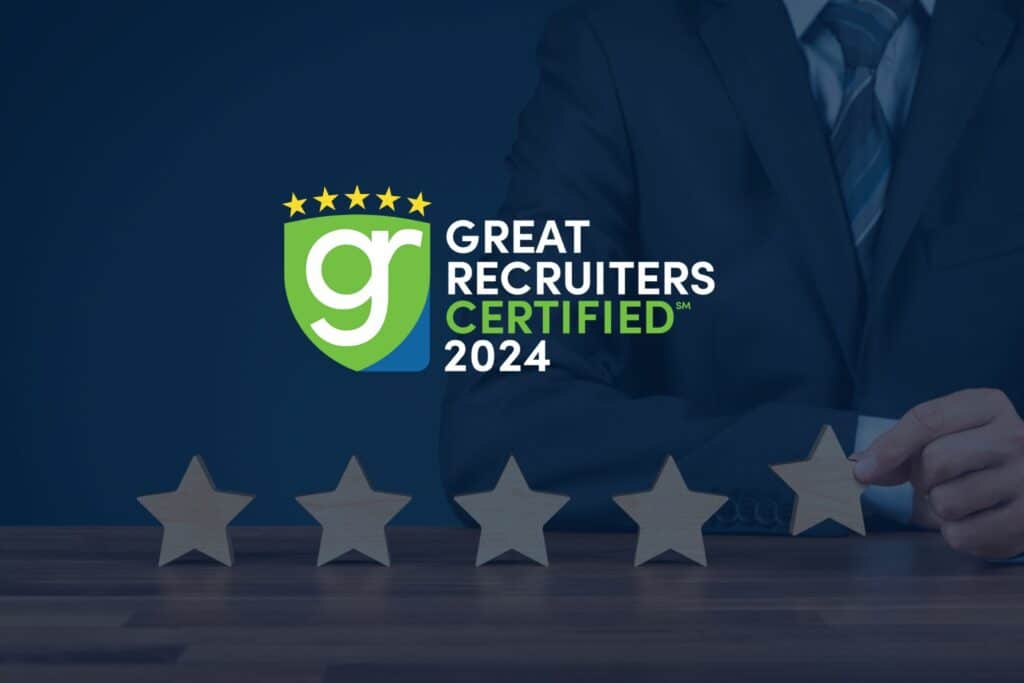AI and HR: Working Together Intelligently
April 29, 2019
Share This Article
Artificial intelligence (AI) experts predict that automation could replace 40% of blue collar and white collar jobs by 2035. Despite the fear of being replaced by automation, AI can enhance opportunities for human resources (HR) professionals and hiring managers to improve efficiency and effectiveness throughout the talent acquisition life cycle.
But exactly what is artificial intelligence? Talent Tech Labs explains that true AI “technology must first learn from known inputs, then derive additional layers of abstraction to reach predictions that refines itself as the machine learns.” AI is actually a broad category that encompasses multiple types of technologies, including the following applications of intellectual labor most relevant to HR and hiring:
- deep learning
- machine learning
- natural language processing
- neural networks
Recruiting, hiring, and retaining a skilled and talented workforce involve uniquely human processes. The irony of AI technology embedded within “human” resources workflows is not lost on recruiting professionals. However, the talent technology industry has already demonstrated how AI can support human decision-making in every step of the recruitment and hiring process, including talent sourcing, interviewing, selection, and onboarding.
Talent Sourcing
Even early in the hiring cycle, AI is fundamentally changing the job search process. To recruit more diverse talent, hiring managers and recruiters can use natural language processing technology to analyze job descriptions, identify biased or unintended language, suggest alternatives using predictive analytics, and ultimately refine job postings and recruiting emails to increase responses from underrepresented candidates.
AI continues to streamline the process of candidate matching by improving the identification of a candidate’s skills and abilities, enabling highly specialized talent searches. Freed from reviewing CVs, recruiters can devote more resources to nurturing relationships with talented candidates.
SCreening and Selection
The preliminary screening of applicants is a time-consuming and labour-intensive process. To support the screening and assessment of job candidates, AI can administer assessments, such as psychometric testing, and even conduct initial video interviews. Machine learning technology can then analyze the enormous amount of data to make recommendations on whether applicants are a good “match” for a specific role. As a sourcing strategy, effectively gauging candidate skills at the beginning of the recruitment process saves time for both the recruiter and job seeker.
An inescapable aspect of being human is a biological predilection towards unconscious bias and a preference for similarity. Although hiring managers are often unaware, bias can significantly affect the outcomes of the screening and selection process. To reduce bias, AI has the unique ability to analyze candidates based solely on skill and ability rather than other factors, such as race, gender, religious affiliation, or socioeconomic status.
Although they may not yet be anticipating it, candidates can now participate in an initial screening from their own homes by an AI-based video interview bot using their computer or mobile phone screen. Applicants’ responses are analyzed by an AI system using machine learning algorithms and natural language processing to consider their answers, word choices, body language, and tone of voice. The video interview analytics can be used by the AI to select the candidates whose skills and abilities are well-aligned with the positions they have applied for by matching their profiles with those of successful employees. The AI can then invite successful candidates to in-person interviews.
One company reaping the benefits of a successful human-machine collaboration is the multinational brand, Unilever, which processes around 1.8 million job applications in order to recruit more than 30,000 employees annually. Leena Nair, Unilever’s Chief of HR, reported that the company’s AI-enhanced screening process enabled the HR department to save around 70,000 human hours of interviewing and assessing candidates.
Nair remarked, “It’s an example of artificial intelligence allowing us to be more human.”
Candidate Engagement
Hiring managers know first-hand that candidate experience can affect a company’s ability to reach top talent. To support their observations, the Future Workplace Candidate Experience Study found that 60% of the job seekers reported a bad candidate experience. Of those 60% reporting a bad experience, 72% reported sharing that experience online or directly with a colleague or friend.
Candidate engagement and experience can be improved by using chatbots as a communication tool. Although these bots are not truly AI-enabled, they can answer questions for potential candidates that hiring managers may not be able to immediately provide, as well as automate other recruitment communication and outreach processes that cause frustration when they are overlooked, such as informing candidates about the progress of their application.
AI-powered chatbots leverage natural language processing and machine learning to guide candidates through the application process, administer skills assessments and integrate information with clients’ applicant tracking system software and calendars.
Onboarding
Finally, an effective employee onboarding process is critical for a good candidate experience as well as a prepared and knowledgeable employee. However, the onboarding process often provides new hires with generic information that may not be tailored to the individual’s incoming background, skills, or knowledge.
According to the 2019 Harvey Nash HR Survey, 57% of HR professionals who responded to the survey expect automation to have a significant impact on onboarding. When a successful candidate is offered a position, AI-powered technology can provide automation, as well as an individualized onboarding experience, helping the new employee adjust to their new role through orientation, training, and development.
From sourcing to onboarding, artificial intelligence is transforming the hiring process—and far beyond. To harness the full potential of a true collaboration with AI, hiring managers and recruiters need to begin reimagining how their daily operations and business processes can be transformed by, rather than merely enhanced with, AI.



